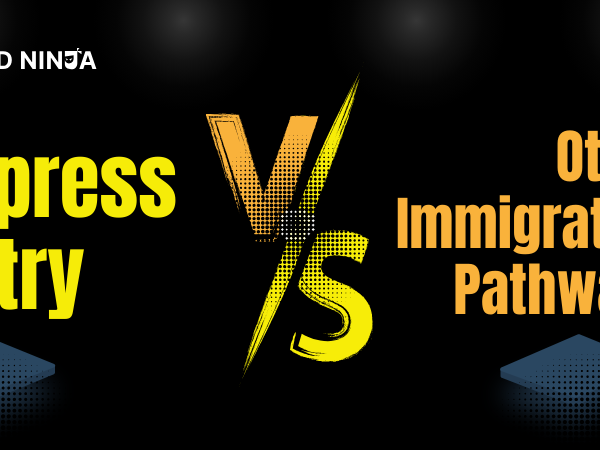Studying abroad is a dream of many. Canada is one of the most incredible places to live and study for international students. You can visit the country and have a great standard of living. Do you want to study in Canada? Are you looking for the best courses and universities to pursue your master’s degree? If yes, let’s check out the list of courses for mechanical engineers in Canada. Master in mechanical engineering in Canada offers many courses and excellent placement. Here’s the information regarding MS in Canada and MS in mechanical engineering in Canada.
List of Courses for Mechanical Engineers in Canada
Mechanical engineering is a branch of engineering that deals with the design, development, manufacturing, and maintenance of mechanical systems. It is a field that requires an understanding of core subjects such as physics, mathematics, and materials science.
Mechanical engineers work in a variety of industries, from automotive to aerospace, and play a critical role in the development of new technologies and products. Are you looking to pursue master’s in mechanical engineering in Canada? Let’s grab the details.
Canada is home to several prestigious universities and colleges that offer mechanical engineering courses at various levels. These courses are designed to provide students with a comprehensive understanding of the field and the skills needed to succeed in their careers.
Here is a list of courses that are commonly offered to mechanical engineers in Canada:
# Engineering Mechanics and Materials: This course focuses on the principles of mechanics and materials science, including stress and strain analysis, mechanics of materials, and the behavior of materials under different loading conditions.
# Thermodynamics and Heat Transfer: This course covers the principles of thermodynamics, including the laws of thermodynamics, thermodynamic cycles, and heat transfer. Students will also learn about different modes of heat transfer, such as conduction, convection, and radiation.
# Fluid Mechanics: This course covers the principles of fluid mechanics, including fluid statics, fluid dynamics, and the Bernoulli equation. Students will also learn about the applications of fluid mechanics, such as the design of pumps and turbines.
# Machine Design: This course focuses on the design and analysis of mechanical systems, including gears, bearings, shafts, and other machine components. Students will also learn about the principles of kinematics and dynamics, which are important for the design of complex mechanical systems.
# Manufacturing Processes and Automation: This course covers the different manufacturing processes used in industry, including casting, forging, machining, and welding. Students will also learn about the principles of automation, including the design of robotic systems.
# Robotics and Control Systems: This course focuses on the design and control of robotic systems. Students will learn about the principles of robotic motion, including kinematics and dynamics, and the design of control systems for robotic applications.
# Computer-Aided Design and Manufacturing: This course covers the principles of computer-aided design and manufacturing, including the use of CAD/CAM software for the design and manufacturing of mechanical systems.
# Finite Element Analysis and Computational Mechanics: This course covers the principles of finite element analysis, including the use of numerical methods for the analysis of mechanical systems. Students will also learn about the principles of computational mechanics, which are important for the design of complex mechanical systems.
# Renewable Energy and Sustainable Design: This course covers the principles of renewable energy and sustainable design, including the design of energy-efficient systems and the use of renewable energy sources.
# Aerospace Engineering: This course focuses on the design and analysis of aerospace systems, including aircraft and spacecraft. Students will learn about the principles of aerodynamics, flight mechanics, and space systems design.
Also Read: Top Universities in Canada for MS in Computer Science
MS in Mechanical Engineering in Canada
Canada is a great place to pursue a Master of Science (MS) in Mechanical Engineering degree. The country is home to several prestigious universities that offer excellent programs in this field, providing students with world-class education and research opportunities. Pursuing an MS in Canada can open up a wide range of career opportunities, both in Canada and abroad.
Here are some key aspects of pursuing an MS in Mechanical Engineering in Canada:
# Admission Requirements: The admission requirements for an MS in Mechanical Engineering vary between universities, but generally, students must have a bachelor’s degree in Mechanical Engineering or a related field.
Students should have a good academic record, a strong GRE or GMAT score, and letters of recommendation. Additionally, students whose first language is not English may be required to provide proof of English language proficiency by taking an English language test such as TOEFL or IELTS.
# Program Duration: The duration of an MS in Mechanical Engineering in Canada typically ranges from one to two years, depending on the university and the program. The program may also include a research thesis or project, which can extend the duration of the program.
# Curriculum: The curriculum for an MS in Mechanical Engineering in Canada is designed to provide students with advanced knowledge and skills in mechanical engineering. The coursework may cover subjects such as advanced mechanics, fluid dynamics, thermodynamics, control systems, materials science, and manufacturing processes. Students may also have the opportunity to specialize in a particular area of mechanical engineering, such as robotics, aerospace, or renewable energy.
# Research Opportunities: One of the key benefits of pursuing an MS in Mechanical Engineering in Canada is the opportunity to engage in cutting-edge research in the field. Canada is home to several research institutions and industrial partners that offer research opportunities to students. Students can work on research projects in areas such as advanced materials, energy systems, and robotics, among others.
# Career Opportunities: Graduates of an MS in Mechanical Engineering in Canada can find employment in a variety of industries, including aerospace, automotive, energy, manufacturing, and robotics. They can work as mechanical engineers, design engineers, research engineers, or project managers, among other roles. Canada’s robust economy and thriving industries offer numerous career opportunities for mechanical engineering graduates.
In conclusion, pursuing an MS in Mechanical Engineering in Canada can be a great choice for students who want to advance their knowledge and skills in this field. The country’s excellent universities, research opportunities, and thriving industries make it an attractive destination for students from around the world.
Conclusion
Canada offers a wide range of mechanical engineering courses that provide students with a comprehensive understanding of the field and the skills needed to succeed in their careers.
Whether you are interested in the design of mechanical systems, the development of new technologies, or the design of sustainable energy systems, there is a mechanical engineering course in Canada that can help you achieve your goals. If you want to join a course or need more information, visit the Abroad Ninja website.




